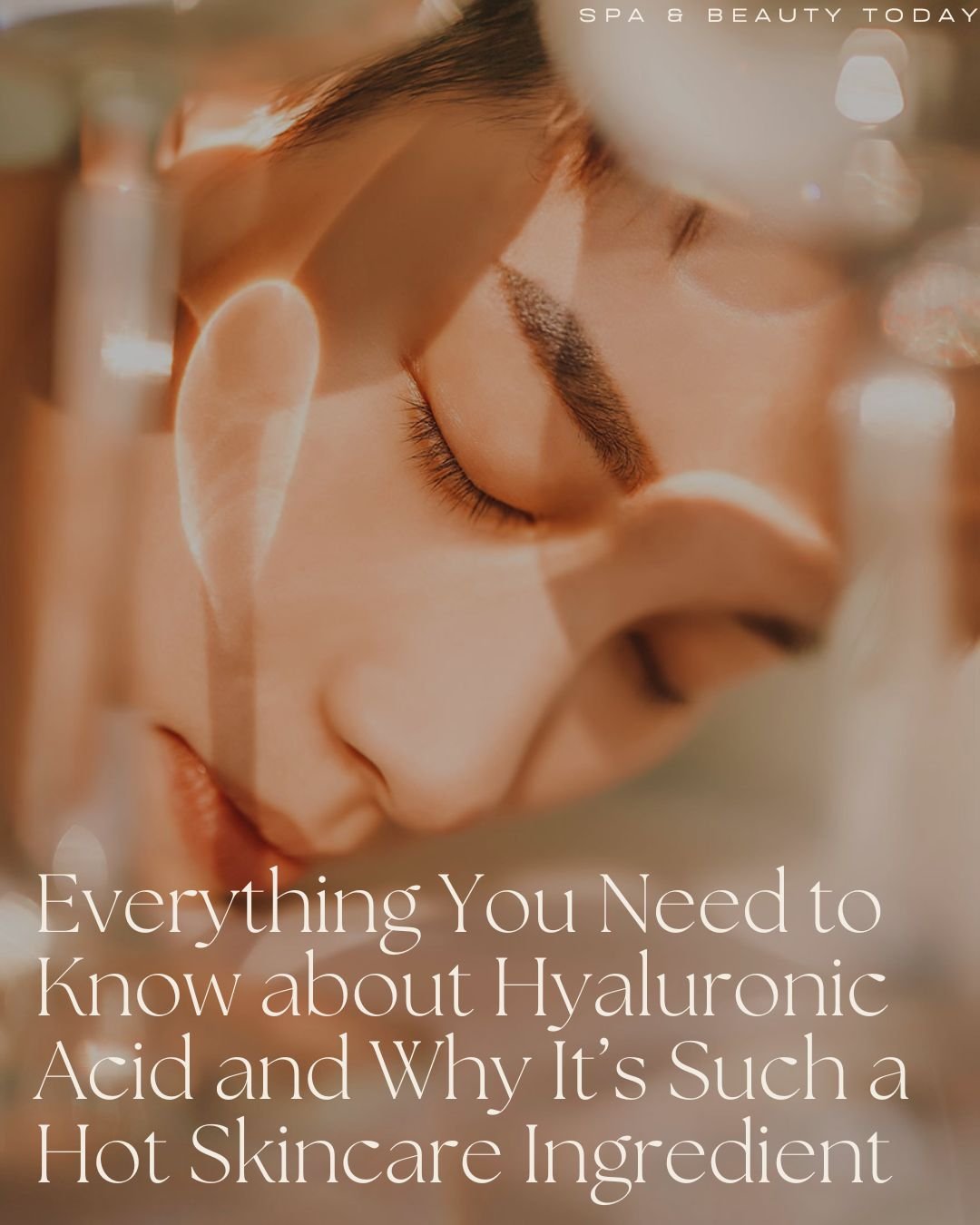Everything You Need to Know about Hyaluronic Acid and Why It’s Such a Hot Skincare Ingredient
If you’re a skincare product fan, you’ll know that in the last few years hyaluronic acid has surged in popularity as an ingredient in everything from lip glosses to face creams. What exactly is hyaluronic acid and why has it become so popular in the world of skincare?
We interviewed Dr. Suneel Chilukuri, M.D., F.A.A.D, F.A.C.M.S, and Chief Medical Advisor at Hydrinity Accelerated Skin Science to learn all about this much-loved skincare ingredient and get his pro tips for achieving the best results. Dr. Chilukuri is a board-certified dermatologist and an internationally recognized expert on cosmetic and reconstructive surgery.
What is hyaluronic acid and why is it found in skincare and beauty products?
HA is a humectant — a substance that retains moisture — and it is capable of binding over one thousand times its weight in water which makes it very effective in hydrating the skin. This substance is naturally found in many areas of the human body including the eyes and joints.
Due to its inherent abilities, hyaluronic acid has historically been used in skincare to plump up and hydrate the skin, resulting in a smoother, fuller appearance. With newer advancements in HA extraction, hyaluronic acid has been given new capabilities when coupled with other ingredients to act as a transport mechanism to support brightening of the skin, delivering beneficial molecules deeper into the skin, and to act as a functional barrier for post procedure support.
What are the benefits of hyaluronic acid and what does it do to your skin?
The main benefit of hyaluronic acid is hydration. However, hyaluronic acid can provide many other benefits aside from anti-aging support. HA is a key component of the extracellular matrix and is part of several steps in the wound healing process. Pure and potent hyaluronic acid is capable of providing support in all aspects of skin health from in-office surgical and non-invasive procedures to effects of intrinsic and extrinsic aging.
Does hyaluronic acid clog pores or cause breakouts? Is it ok for sensitive skin?
Hyaluronic acid by itself is non-comedogenic, meaning it does not clog pores or cause breakouts and is suitable for all skin types including reactive skin. However, always pay attention to the complete formula and quality of hyaluronic acid being applied. Other ingredients in a formula when mixed with HA may congest pores, negating the benefits of HA for blemish prone skin. As well, HA that has too high of a molecular weight, may cause a sticky or tacky residue that can provide an undesirable result on the skin as well.
Are there any potential risks/side effects from using it? Can it cause irritation? Who should and shouldn’t use products with hyaluronic acid?
Hyaluronic acid is generally suitable for all skin types, but that comes with caveats. I’m sure you’ve heard the saying, “Too much of a good thing…”? Too much of the wrong HA can sometimes have the opposite effect on the skin. If a low molecular weight HA is not precise, for example, it can travel too deep into the skin and cause inflammation, which is the opposite of what we want from our HA products. Likewise, if you apply HA to dehydrated skin, but do not provide enough internal hydration for your body, HA may cause further drying as it pulls more moisture from deeper in your skin to the surface.
Can hyaluronic and niacinamide be used together?
Yes, hyaluronic acid and niacinamide have similar crossover benefits and complement each other well in a skincare regimen. They both contribute to the hydration levels in the skin as well as other corrective benefits such as evening skin tone, supporting blemish prone skin by normalizing sebum production, and playing a role in reduction of fine lines and wrinkles.
In which types of products do you think hyaluronic acid is the most useful as an ingredient?
Hyaluronic acid is truly a multi-modality ingredient that can adapt to the formula and needs of the skin and provide different benefits from soothing and calming the skin in a cleanser, to multi-level hydration in serums, moisturizers, and even SPF products.
How regularly does someone need to incorporate hyaluronic acid into their beauty routine to see results?
The amount someone uses hyaluronic acid in a facial routine depends on preference and the product being used. It can be used daily, but it depends on the individual's skin needs and the concentration of hyaluronic acid in the product. It’s important to be consistent to achieve and maintain desired results.
Hydrinity HA Serum
What makes the Hydrinity HA Serum unique from other hyaluronic products?
Hydrinity is the first aesthetics company to introduce the next generation of hyaluronic acid not seen in over 20 years. Hydrinity HA Serum features HA extracted using a patented process that creates potent, injectable-grade HA, in two precise weights.
The high molecular weight HA draws moisture into the skin’s surface to help reduce the appearance of fine lines and wrinkles while protecting the skin barrier. The low molecular weight HA penetrates deep into the dermal layer delivering peptides, antioxidants, and hydration that generate healthy, luminous skin.
Are there any hyaluronic acid myths that people should know about?
One of the bigger myths that I regularly hear is that all HA is created equal. Like many other ingredients in skincare, they do not all provide the same benefit. There are many different ingredient qualities, extractions, and weights of HA, and some work better than others for different reasons. The one thing I like about Hydrinity’s patented HA is that it more closely mimics the HA molecule that is naturally produced by our own body, but this natural production of HA reduces as we age. This longer and stronger molecular chain from Hydrinity HA will allow your body to utilize it just like the HA it naturally produces, helping to improve unwanted challenges in our skin.
When should you use this product in your skincare routine?
The Restorative and Renewing HA serums from Hydrinity are meant to be applied after cleansing the skin, but before any moisturizer or SPF products.
As a pro tip, applying a high-quality HA serum soon after cleansing will allow the moisture remaining in your skin to be locked-in by the serum.


